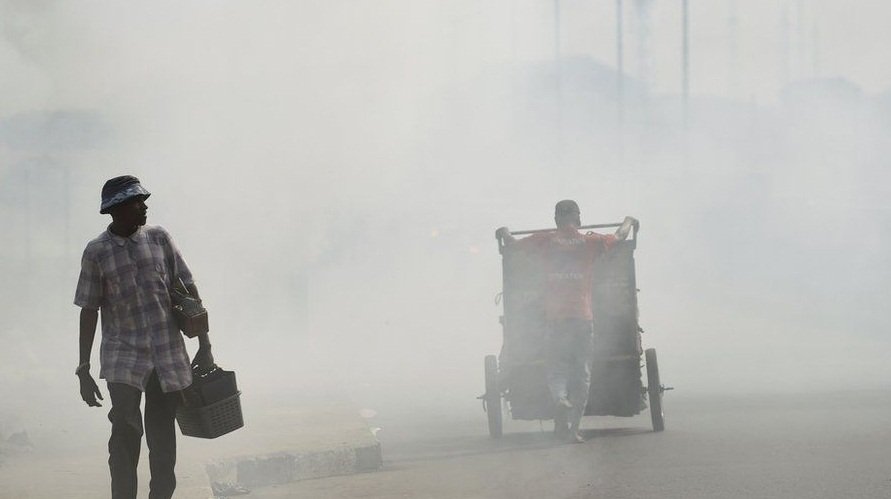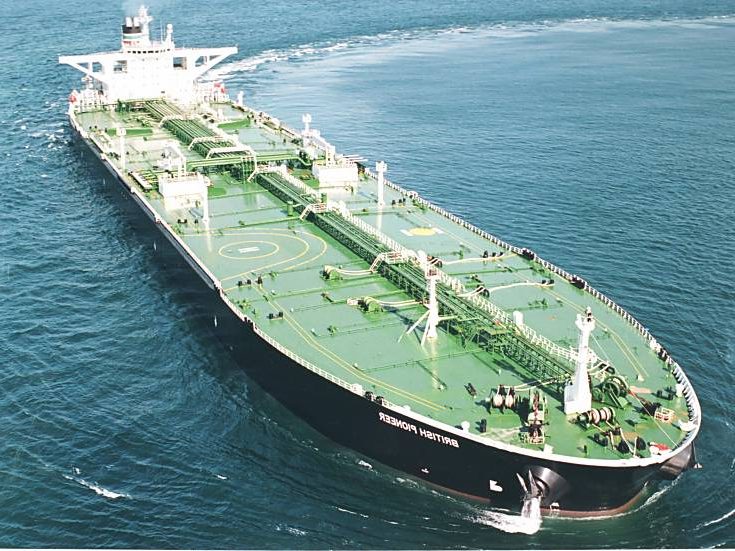 11 March 2018, Sweetcrude, Port Harcourt — Among the motley of issues the residents of Rivers State of Nigeria have to contend with in the course of living what is now accepted to them as normal existence, an environmental hazard in the form of clouds of soot descends on them on a daily basis, adding to the many factors that have defined life expectancy at the lowest possible levels, note, by African, not world standards. Note also that “normal existence” implies abnormal temperature levels owing to gas flaring since the 1970s, poisoned water wells and rivers, excoriated farmlands [all owing to years of oil and gas production activities] and insecure societies, the last, an unforced error committed by the people in an effort to breach economic inequities created by wrong government policies.
11 March 2018, Sweetcrude, Port Harcourt — Among the motley of issues the residents of Rivers State of Nigeria have to contend with in the course of living what is now accepted to them as normal existence, an environmental hazard in the form of clouds of soot descends on them on a daily basis, adding to the many factors that have defined life expectancy at the lowest possible levels, note, by African, not world standards. Note also that “normal existence” implies abnormal temperature levels owing to gas flaring since the 1970s, poisoned water wells and rivers, excoriated farmlands [all owing to years of oil and gas production activities] and insecure societies, the last, an unforced error committed by the people in an effort to breach economic inequities created by wrong government policies.

The federal government argues that the black clouds of soot are caused by illegal crude oil refining activities in Rivers State, arguing further that the refining activities at the federal government owned Port Harcourt Refineries, have not introduced any new modalities that would alter the environment so radically. On their own part, the Rivers State Government, the other authority obligated to ensuring environmental safety in Rivers State, swear that the soot is caused by the bombing of illegal refineries by federal forces. Speaking two days ago on a Channels Television interactive programme, Governor Nyesom Wike of Rivers State told correspondents of Channels that he had engaged officials of the federal government, asking them to deploy other means to destroy the illegal crude oil refining activities. There are other theories as to the appearance of soot in the clouds and homes of Rivers residents. A resident of Akpajo, Eleme spoke at a panel investigating the cause of soot in Rivers environment. According to this lady, Indorama Plc, the successors-in-title to the Eleme Petrochemicals Company, a former federal government owned petrochemicals business, flares gas in the dead of night, mostly between the hours of 1 am and 4 am, producing noxious fumes that settle on Rivers homes as soot within the day. Indorama Plc is owned predominantly by Indians but they appear to enjoy a level of protection that shields their operations against environmental scrutiny.
Whatever the cause or causes may be, the presence of soot, which Wikipedia defines as “a mass of impure carbon particles resulting from the incomplete combustion of hydrocarbons” in Rivers environment is not deniable and while the debates on its causal factors rage on unendingly, the residents of that patch of real estate face all sorts of negative uncertainties, ranging from bronchial infections to cancers and edemas. The simple implication of this reality is that whether or not the cause or causes of this rain of impure carbon particles on the residents are not identifiable, the people of Rivers State are facing environmental and health crises. Frantic efforts should commence to unravel the implications of this rain of impure particles of carbon to the men, women and children that live in Rivers State while and if the politics and polemic exercises surrounding its appearance continue in order for protectionist protocols and modules to be developed within time for the innocent population.
The situation in Rivers State reminds me a lot about the African question that pops up whenever Africa and Africans are involved in businesses or activities that have performed optimally for others. Crude Oil was discovered in Texas, USA at Powell Field and near Corsicana in 1900 and on the 10th of January, 1901. American explorers found oil in commercial quantity at Saudi Arabia’s Damman Oil Well No. 7 in 1938; in 1940 the Onshore Dukhan Oil Field produced commercial quantities of Crude in Qatar, at least 30 years after the discovery of Crude Oil in Brunei [in 1910 after the 1899 attempt that failed at 850 feet]. Texas, Saudi Arabia, Qatar and Brunei have been transformed from Wastelands to estates of environmental as well as social paradise owing to sound organisation, order, acceptance of the location of the proprietary interest in the commodity, espousing the truism that the commodity is meant to edify and not a curse and insisting on standards applied internationally in the exploration and exploitation of the commodity. Sadly Nigeria’s Niger Delta, the producer region and the federal government, the statutory owner that suffers no environmental consequences for its bad policies, have not found rhythm or a meeting place over the issues that surround the management of Crude Oil discovered only in 1959 for the benefit of all Nigerians.



